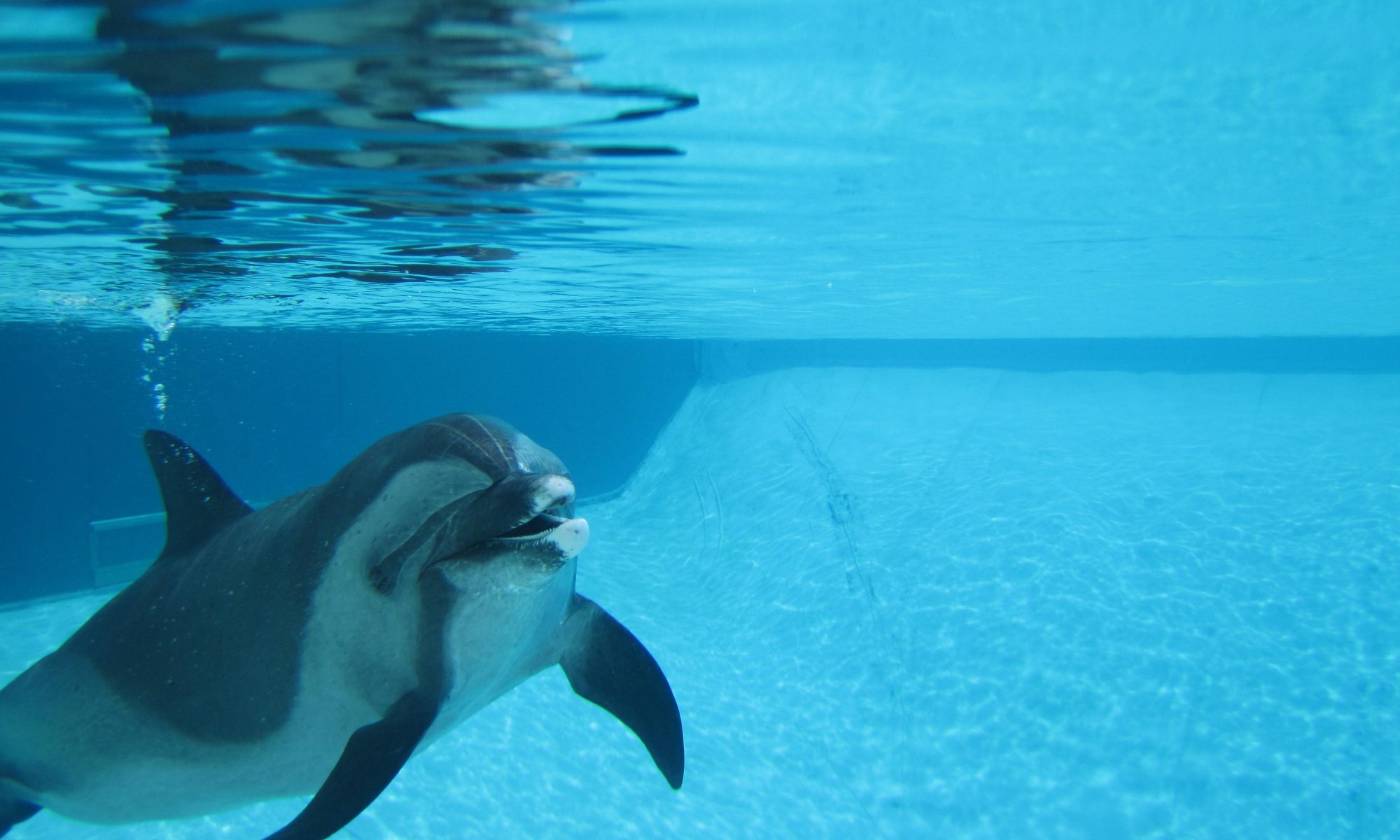Moonshine the dolphin is a special cetacean. Although a chronic liver problem has confined him to human care for the rest of his life, an interdisciplinary team that includes UF professor of psychology Nicole Dorey and alumna Barbara Perez ’14 has developed an enrichment program that includes several custom-made toys. The study, published on Oct. 25, 2017, in the Journal of Applied Animal Welfare Science, examines how socialization and environment help Moonshine feel happier in his artificial environment.
Perez, then an intern at Mote Marine Laboratory, where Moonshine resides, brought him to Dorey’s attention. Moonshine is the only pantropical spotted dolphin in captivity in the U.S. Perez, Dorey, and their collaborator Lindsay Mehrkam PhD’15 at Monmouth University saw an opportunity to study both the potential for enrichment of Moonshine’s habitat and daily experience— and provide guidance for other species captive for rehabilitation or long-term care — and the mental well-being of these intelligent creatures.
Members of the clade Cetacea, which includes dolphins, whales, and porpoises, have shown ample evidence of social–emotional intelligence, as well as problem-solving skills and a capacity for communication. The methods of psychological inquiry can illuminate how and why cetaceans interact with their environment and other creatures, including humans, and respond to stimuli, or lack thereof. “Since my background is in behavior analysis — and UF has one of the best behavior analysis departments — I love that we can use behavior analytic methodology, normally used with autistic children, to improve the welfare of animals in captivity,” says Dorey. Perez, now a lab manager at UC San Diego Comparative Cognition Lab, intends to pursue graduate work in applied cognitive science for animal care.
Enrichment is hypothesized to mitigate “stereotypic” behaviors, i.e. aberrant behaviors that among captive cetaceans include rubbing themselves across the bottom of the tank and popping their jaw — a normally aggressive act that, in isolation from conspecifics, denotes boredom and irritability.
Moonshine is the only permanent resident dolphin at Mote, which rehabilitates beached and injured marine life in its Dolphin and Whale Hospital. He arrived in June 2003 for physical therapy needed for his injuries from being stranded. During his otherwise successful rehabilitation, he continued to show elevated liver enzymes. Because the cause was never determined, the National Marine Fisheries Service deemed Moonshine unreleasable and Moonshine became Mote’s resident dolphin, sharing his tank with other patients on occasion. Mote researchers, including Moonshine’s trainer and the paper’s co-author Amanda Foltz, have tracked his behavior over the years. Mote interns designed three environmental enrichment devices (EEDs) that provided Moonshine with play and tactile opportunities. This study was the first time Moonshine’s responses to the EEDs were scientifically measured.
The researchers offered the EEDs to him in conjunction with “training,” i.e. when scientists were interacting with him. They measured Moonshine’s engagement with the EED, randomly chosen for each session, and whether it made a difference if the EED was tossed into the pool or presented to him by a trainer. They then observed whether or not Moonshine then engaged in stereotypic behaviors.
For Moonshine, playing with others made him feel better than playing alone. He interacted with the EEDs more when they were enticingly given to him, and he was less likely to start rubbing himself on the bottom of the pool when he had the opportunity to play, especially if a trainer enticed him with the EED.
The researchers note that much more research is still needed to design adaptive enrichment programs for captive cetaceans. In addition to its important contributions to the body of knowledge about their socialization and play needs, this research produced an optimal enrichment program for Moonshine, making him a happier, healthier dolphin.
